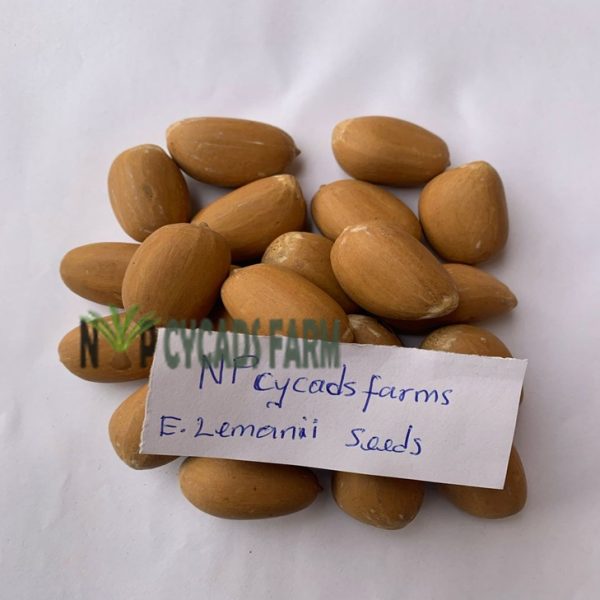Whatapp:
+278.3675.0634
Work Hours
Monday to Friday: 7AM - 7PM
Weekend: 10AM - 5PM

Original price was: $4.00.$3.00Current price is: $3.00.
lehmannii seeds are deep red in color and come from a cycad species native to South Africa, particularly the Eastern Cape region
lehmannii seeds are deep red in color and come from a cycad species native to South Africa, particularly the Eastern Cape region. The seeds are contained within female cones, which are barrel-shaped and about 450-500 mm long and 250 mm in diameter. These cones have a slightly darker color than the male cones and are covered with fine brownish hair
The seeds are fleshy, about 4.5-7.5 cm long including the aril, and roughly 2 cm in diameter
Germination can occur even with minimal moisture, such as occasional light mists, and seeds are capable of germinating after being exposed to natural conditions
Seed germination is slow and can take several months, requiring patience
Seeds are poisonous, so caution is advised when handling them (Lehmannii Seeds)
Seeds should be collected from fully ripe female cones, cleaned thoroughly to remove pulp, and sometimes treated with fungicide to prevent fungal diseases during germination
Planting depth should be about twice the diameter of the seed in a well-draining, nutrient-rich substrate suitable for cycads or succulents
Keep the soil slightly moist but not waterlogged during germination to avoid root rot
Optimal germination temperature is between 20°C and 30°C, and seeds should be kept in a bright but not direct sunlight location
The plant grows slowly and prefers a sunny, warm environment with moderate watering, especially in summer
Encephalartos lehmannii is drought-resistant and can tolerate light frost down to about -5 to -7 °C for short periods (Lehmannii Seeds)
The species is protected under CITES regulations, and legal acquisition requires proper documentation
Besides seed propagation, the plant can also be propagated by removing and planting suckers from the stipe
In summary, Encephalartos lehmannii seeds are distinctive deep red, slow to germinate, and require specific care conditions including warmth, moderate moisture, and well-draining soil. The species is prized for its ornamental value and drought tolerance but is protected and slow growing. Handling seeds requires caution due to their toxicity. (Lehmannii Seeds)
Reviews
There are no reviews yet.